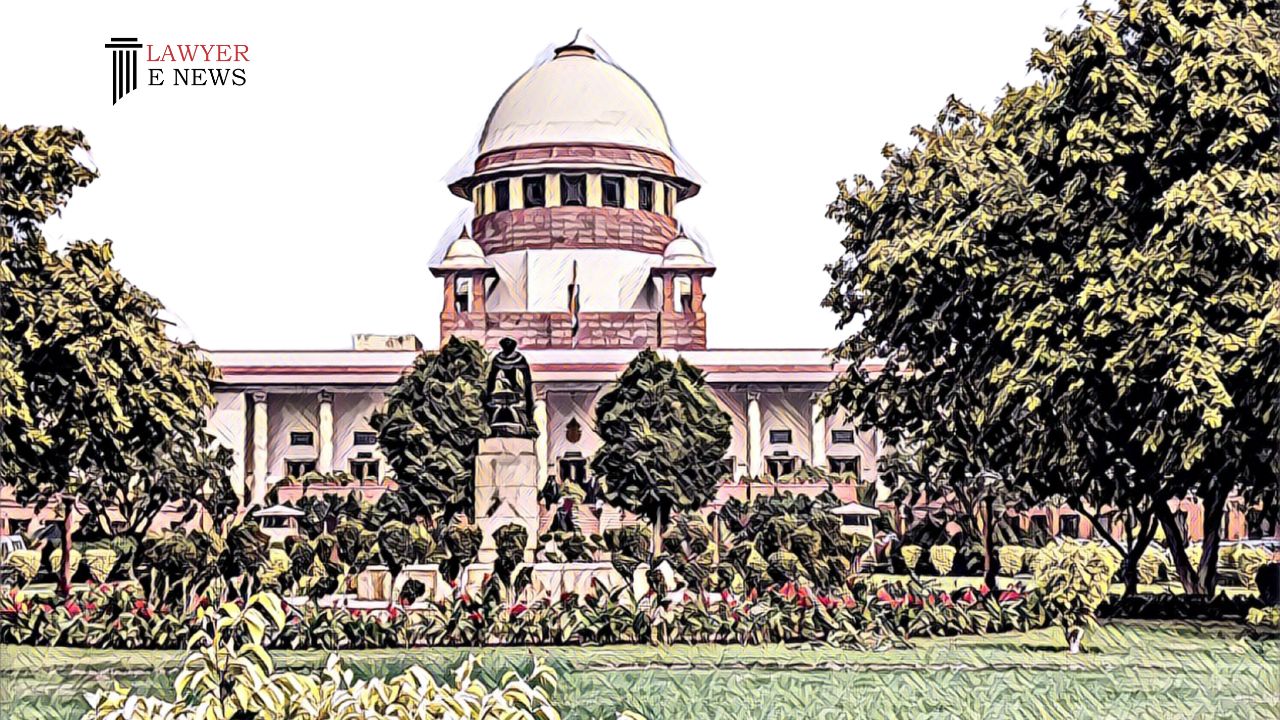-
by sayum
14 February 2026 2:22 PM



Supreme Court affirms maintainability of West Bengal's suit challenging CBI's jurisdiction under Article 131.
The Supreme Court of India has rejected the preliminary objections raised by the Union of India regarding the maintainability of the suit filed by the State of West Bengal. The suit, filed under Article 131 of the Constitution, challenges the jurisdiction of the Central Bureau of Investigation (CBI) to register and investigate cases in West Bengal following the state's withdrawal of consent under Section 6 of the Delhi Special Police Establishment (DSPE) Act. The Court's decision underscores the legal complexities and federal dynamics involved in the exercise of investigative powers by central agencies in states.
The State of West Bengal filed a suit under Article 131 of the Constitution seeking several declarations and reliefs, including the declaration that registration of cases by the CBI after the withdrawal of consent under Section 6 of the DSPE Act is unconstitutional. The state also sought to restrain the CBI from investigating cases in West Bengal post-withdrawal of consent, arguing that such actions violate the Constitution and the principle of federalism.
The Supreme Court reiterated its exclusive original jurisdiction under Article 131, which allows states to bring suits directly to the apex court for disputes involving legal rights against the Union of India or other states. The Court referenced previous judgments, including the State of Bihar v. Union of India and State of Rajasthan v. Union of India, to underline that disputes under Article 131 must involve legal rights and not merely political issues.
The Court emphasized that for considering preliminary objections, only the averments made in the plaint should be looked into to determine if a cause of action is made out. The Court noted that the State of West Bengal had made substantial averments regarding the CBI's jurisdiction and the procedural requirements under the DSPE Act, which necessitate state consent for CBI investigations within its territory.
The judgment highlighted the legislative framework governing CBI's operations under the DSPE Act, noting the requirement of state consent as per Section 6 of the Act. The Court also addressed the interpretation of the term "subject to the provisions of this Constitution" in Article 131, rejecting the Union's argument that ongoing proceedings under Articles 32, 136, or 226 preclude a suit under Article 131.
The Supreme Court affirmed that the State of West Bengal had established a prima facie legal right to challenge the CBI's jurisdiction following the withdrawal of consent. The Court rejected the Union's contention that the suit was non-maintainable due to the involvement of procedural and jurisdictional issues already pending in other courts.
The Court clarified the distinction between the State as a political entity and the State Government, emphasizing that the suit involves the State's legal rights under the federal structure of the Constitution. This interpretation reinforces the principle that states can seek judicial review of the Union Government's powers impacting their jurisdiction.
Justice B.R. Gavai, delivering the judgment, remarked, "The interpretation as placed by the defendant - Union of India would not be in consonance with the constitutional scheme and as such, is liable to be rejected". The judgment also cited Justice Chandrachud's observations from a previous case, underscoring that disputes under Article 131 must involve legal rights and not mere political issues.
The Supreme Court's dismissal of the Union of India's preliminary objections allows the State of West Bengal's suit to proceed on its merits. This landmark decision underscores the Court's role in adjudicating federal disputes and upholding the constitutional balance of power between the Union and the States. The suit's outcome could have significant implications for the jurisdiction and operational scope of central investigative agencies within states, reinforcing the necessity of state consent under federal principles.
Date of Decision: July 10, 2024
State of West Bengal vs. Union of India
